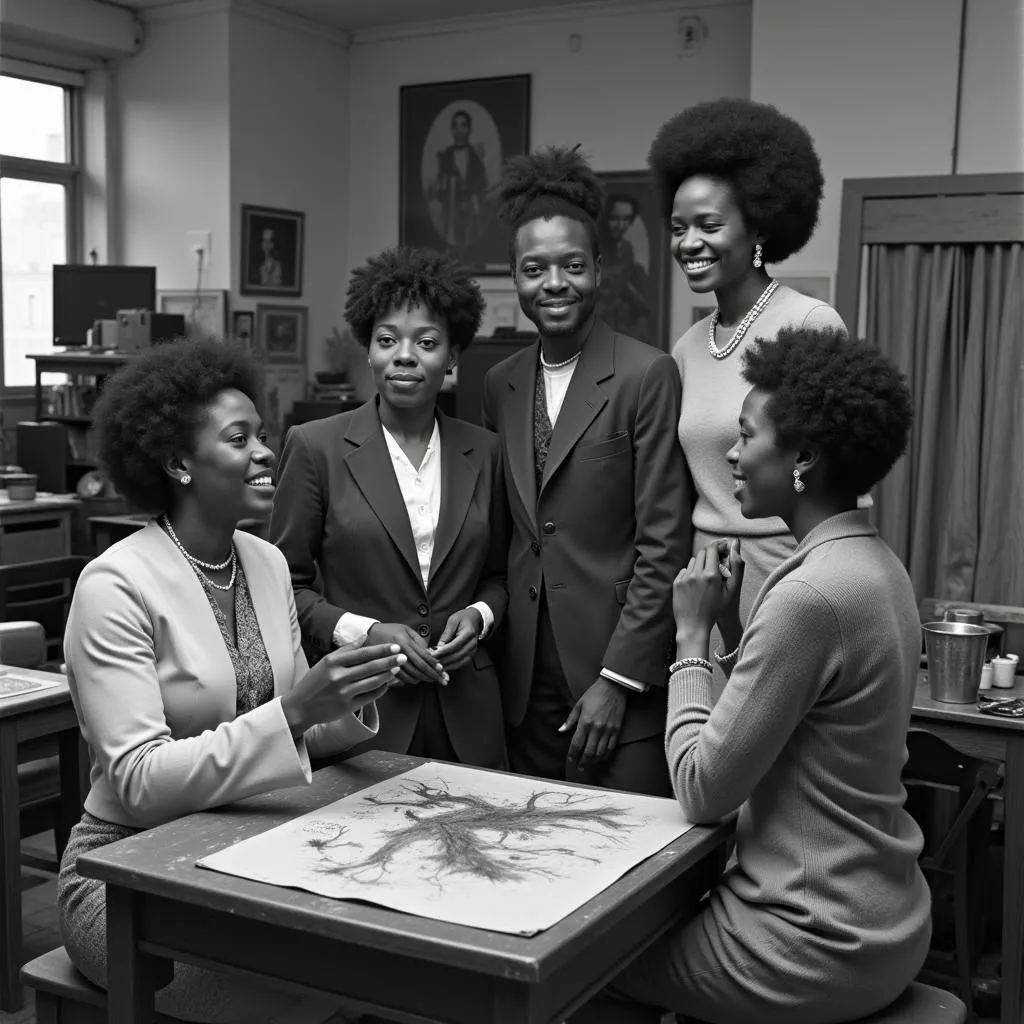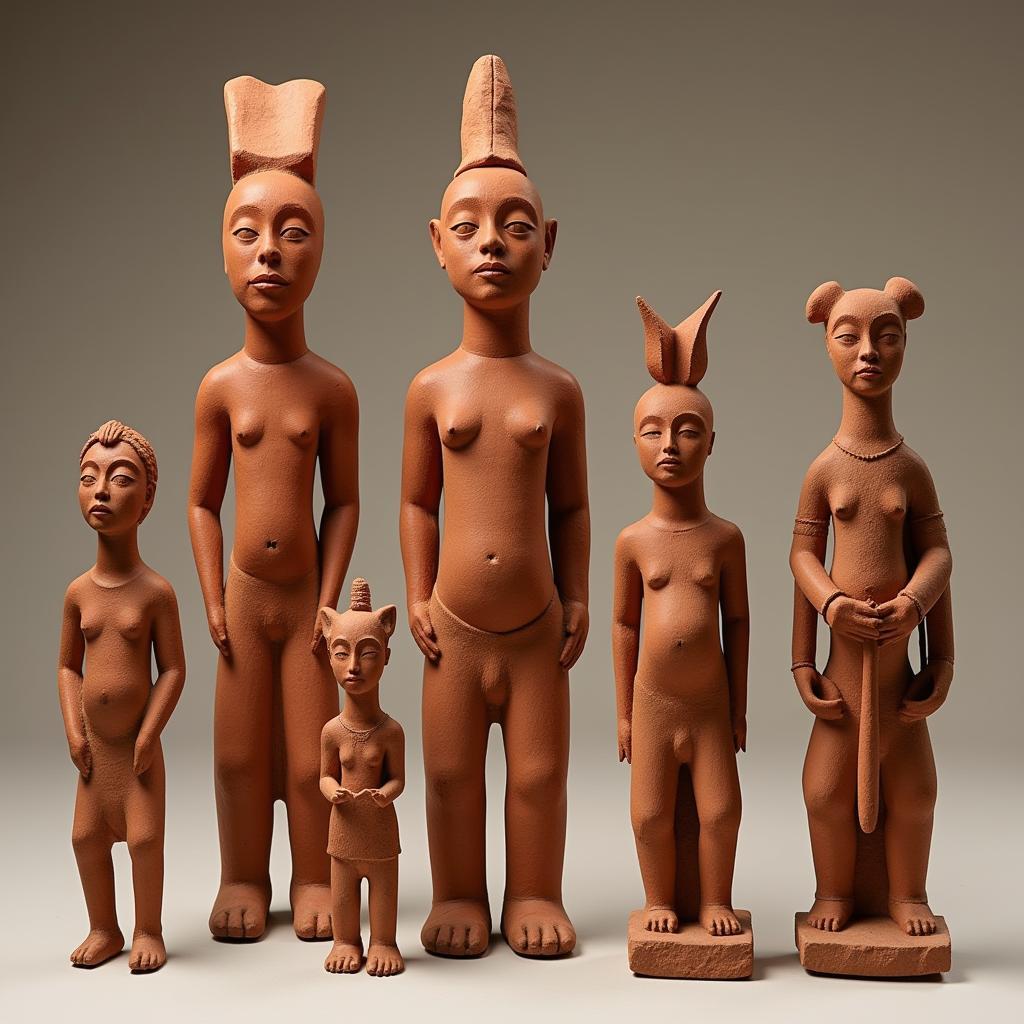South African Tribes: A Journey Through Cultural Diversity
South Africa is a land of breathtaking beauty, diverse landscapes, and rich cultural heritage. It is also home to a vast array of tribal groups, each with its own unique traditions, languages, and customs. Exploring these tribal communities offers a glimpse into the vibrant tapestry of South African Life, revealing a fascinating history and a spirit of resilience.
The Significance of Tribes in South Africa
South African Tribes have played a significant role in shaping the nation’s identity, contributing to its artistic expressions, music, and culinary traditions. Understanding their history and cultural practices provides valuable insights into the complexities of South African society.
Understanding the term “tribe” is crucial. While it refers to a group of people sharing a common ancestry, culture, and language, it’s important to recognize that the term can be outdated and potentially problematic.
Major Tribes of South Africa
South Africa is home to a multitude of tribes, each with a distinct cultural background and history. Some of the most prominent tribes include:
-
The Zulu are the largest and most well-known tribe in South Africa, renowned for their warrior culture and elaborate traditional dances. They have a rich history of resistance against colonialism and have left an enduring legacy on the nation.
-
The Xhosa are another significant tribe, sharing a similar language and cultural heritage with the Zulu. They have a strong artistic tradition, known for their beadwork and intricate Xhosa blankets.
-
The Venda are known for their unique language, vibrant traditional dances, and strong connection to nature. They have a deep respect for their ancestors and believe in the power of spiritual rituals.
-
The Ndebele are famous for their intricate and colorful murals, often adorning the walls of their homes. Their vibrant art reflects their social structure and beliefs, showcasing their rich heritage.
-
The Tswana are known for their agricultural skills and strong communal bonds. They have a vibrant musical tradition, with traditional music played on instruments like the “marimba” and “mbira”.
Cultural Expressions and Practices
The diverse tribes of South Africa have each developed unique cultural expressions that showcase their traditions and beliefs. These expressions can be found in various aspects of their lives, including:
-
Language: South Africa is a multilingual country, with each tribe speaking its own unique language. The most widely spoken languages include Zulu, Xhosa, Afrikaans, and English.
-
Art and Craft: Traditional art forms play a vital role in tribal life, serving as expressions of social values, beliefs, and history. These art forms range from elaborate beadwork, wood carvings, and pottery to the vibrant murals of the Ndebele.
-
Music and Dance: Traditional music and dance are deeply intertwined with tribal life, reflecting their cultural identity and serving as a form of communication and storytelling.
-
Clothing and Adornment: Traditional clothing and adornment often hold symbolic meanings, representing social status, religious beliefs, and cultural identity.
-
Food and Cuisine: Each tribe has its own unique culinary traditions, utilizing local ingredients and cooking techniques passed down through generations.
The Impact of Colonization and Apartheid
The history of South Africa is deeply intertwined with colonization and apartheid, which have had a significant impact on tribal communities. Colonization disrupted traditional ways of life, while apartheid enforced segregation and discrimination, leading to social and economic inequalities.
However, despite these challenges, South African tribes have demonstrated resilience and have played a crucial role in shaping the nation’s post-apartheid journey. They have been instrumental in promoting cultural diversity and unity, fostering dialogue and understanding between different communities.
Exploring Tribal Communities
South Africa offers numerous opportunities to experience the richness and diversity of its tribal cultures. Visitors can:
-
Visit tribal villages: Many communities welcome visitors, offering a glimpse into their daily life, traditional customs, and art forms.
-
Attend cultural events: Festivals, dances, and ceremonies offer a vibrant and immersive experience into tribal life.
-
Engage with local guides: Engaging with local guides who have a deep understanding of tribal cultures can provide valuable insights and authentic experiences.
-
Support local businesses: Supporting local businesses and artisans helps preserve traditional crafts and skills, fostering sustainable economic development within tribal communities.
Frequently Asked Questions
Q: What is the difference between a tribe and a nation?
A: While both terms refer to groups of people, a tribe typically refers to a smaller, more closely knit group sharing a common ancestry, culture, and language. A nation, on the other hand, encompasses a larger group of people sharing a common territory, government, and national identity.
Q: Are tribal communities still relevant in modern South Africa?
A: Yes, tribal communities continue to play a vital role in modern South Africa, contributing to the nation’s cultural diversity, artistic expressions, and economic development.
Q: How can I respectfully interact with tribal communities?
A: Always ask for permission before taking photographs, respect local customs and traditions, and avoid making generalizations or assumptions about tribal communities.
Q: What are the most important things to learn about South African tribes?
A: The most important thing is to learn about the diversity and richness of their cultures, traditions, and history. Avoid using stereotypes and seek to understand their unique experiences.
By embracing the diversity of South African tribes, we can gain a deeper appreciation for the nation’s rich cultural tapestry and foster understanding and respect for its diverse communities.


